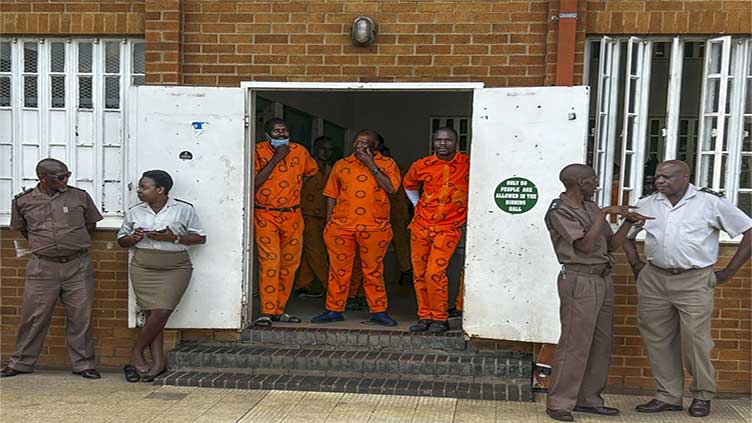Election officials in South Africa rush to register 100,000 prisoners to vote

World
Election officials in South Africa rush to register 100,000 prisoners to
PRETORIA, South Africa (AP) — South African election officials have visited prisons across the country as part of an ambitious project to register at least 100,000 inmates to vote in this year’s national election.
The country’s constitution guarantees every adult citizen the right to vote — meaning there are no restrictions on prisoners taking part in elections, a stark contrast to most other African nations. The date for the vote has not yet been announced, but it’s expected to be held between May and August.
The Electoral Commission of South Africa hopes to register a record number of inmates in the 240 correctional facilities across the country as voters. Around 15,000 prisoners voted in the last national election in 2019.
South Africa has about 157,000 inmates currently in prison, according to authorities. The country struggles with one of the highest crime rates in the world.The commission said that though it was concluding its visit to all 240 prisons by the end of Thursday, it still could not say how many prisoners countrywide had registered.
At the all-male Zonderwater Correctional Centre on the outskirts of the capital, Pretoria, prisoners in orange uniforms lined up Thursday in a hall to register as first-time voters or update their details on electoral rolls if they have been recently incarcerated.
Guards kept a close watch. A banner with the words “Ensuring Free and Fair Elections” was pinned to a prison wall.
Other inmates ignored the process, chatting to each other or getting on with their work preparing lunch in the cafeteria.
“The whole country is a single constituency,” said electoral commission chairperson Mosotho Moepya. “Whether they are here at Zonderwater … or elsewhere in the country.”
Khathutshelo Mashau, an inmate who registered, said he thinks that prisoners also have an interest in who governs the country.
“The way our courts are operating sometimes, it does frustrate us,” Mashau said. “If you are writing an appeal it takes so long. That’s one thing that us, as offenders, we are worried about.”
Mandla Mpangane also registered to vote but said most prisoners did not, largely because they are disillusioned with the way the legal process handles their parole applications and grievances while in prison.
He said he hoped his vote would improve the running of the prison and life for his family on the outside.
“It will make a big difference in our community,” he said.
South Africa, with a population of 62 million, has more than 27 million registered voters so far for this year’s national election.
It will be South Africa’s seventh under its new democracy. The country’s first all-race vote was held in 1994 and saw Nelson Mandela elected as the country’s first Black president to officially end the apartheid system of forced racial segregation.
The African National Congress party once led by Mandela has been in government ever since apartheid ended.


